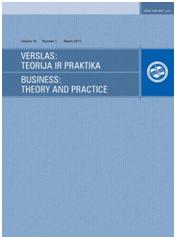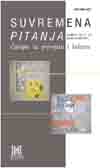
Impact of Market Concentration on the Profitability of Lithuanian Banking Sector
Impact of Market Concentration on the Profitability of Lithuanian Banking Sector
Keywords: concentration; profitability; return on equity; return on assets; banking sector
The performance of the bank can be measured in many different ways. However, profitability is the primary instrument depending on various factors one of which is market structure having the most significant indicator – industry concentration that can be defined as the number and distribution of competitors with reference to a simple index. The conducted research is based on the most frequently used concentration measures: the HerfindahlHirschman index, the k bank concentration ratio and profitability indicators such as return on assets and return on equity. The analysis of the results of changes in the ratios of banking sector concentration and profitability has disclosed no direct connection between these indexes.
More...
